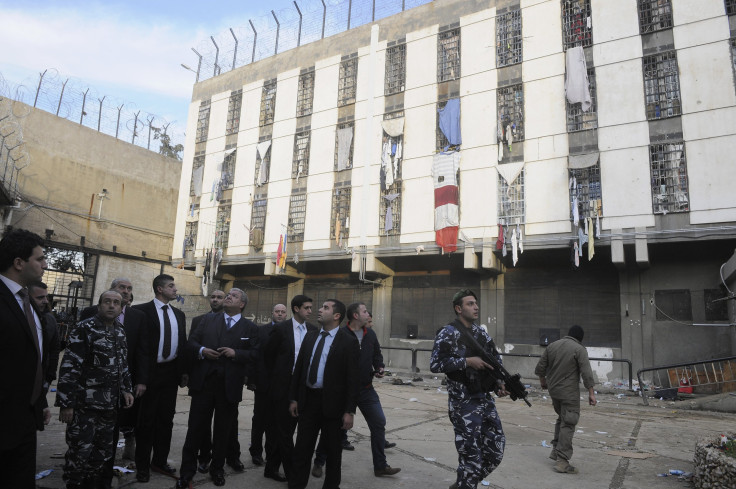Lebanon Prison Riot: Roumieh Inmates Demand Wi-Fi, Cell Phones Amid Torture Scandal

Prisoners at Roumieh Prison in Beirut, Lebanon orchestrated a riot Tuesday to demand better living conditions, including access to Wi-Fi and cell phones, according to a report. The riot occurred just days after the release of footage that appeared to show Roumieh prison guards torturing a group of inmates.
A group of “drug convicts” appeared to have organized the riot, a source familiar with the situation told Lebanon’s Daily Star newspaper. The prisoners demanded access to Wi-Fi, cell phones and the Internet. It’s unclear which other aspects of their living conditions were under protest, or if the incident was related to allegations of torture at Roumieh.
Multiple officials from Lebanon’s Internal Security Forces arrived at the prison to negotiate with the rioters, the Daily Star said. Additional police were sent to the prison to help end the violence.
Leaked footage posted to YouTube Saturday showed guards at Roumieh beating a group of restrained Islamist prisoners with batons. The apparent torture left some of the prisoners with broken bones or even blindness, the victims’ families said in a joint statement to Al Arabiya.
At least five Internal Security Forces agents were arrested in connection with the leaked video, two of whom face charges for direct participation in the prisoner abuse, the Daily Star reports. The Lebanese government has yet to definitively say who leaked the footage, though Justice Minister Ashraf Rifi said Tuesday that Lebanon-based Shiite Islamist group Hezbollah was responsible.
“I accuse Hezbollah of leaking the videos,” Rifi said in a press conference. “There are about four videos, and only Hezbollah had access to some of them.”
Known for its harsh treatment of prisoners, Roumieh Prison is Lebanon's largest detention facility. Several riots have occurred at the prison in recent years. Authorities sent riot police into the prison’s Block D in April after inmates took guards hostage and set fires to protest new rules designed to limit weapon and drug smuggling.
Police raided Block B in January amid evidence that Islamist elements had coordinated deadly terrorist attacks from within the prison’s walls, the Associated Press reported. Prior to that raid, inmates purportedly bought cell phones and computers from guards and lived in cells that did not have doors.
© Copyright IBTimes 2025. All rights reserved.






















